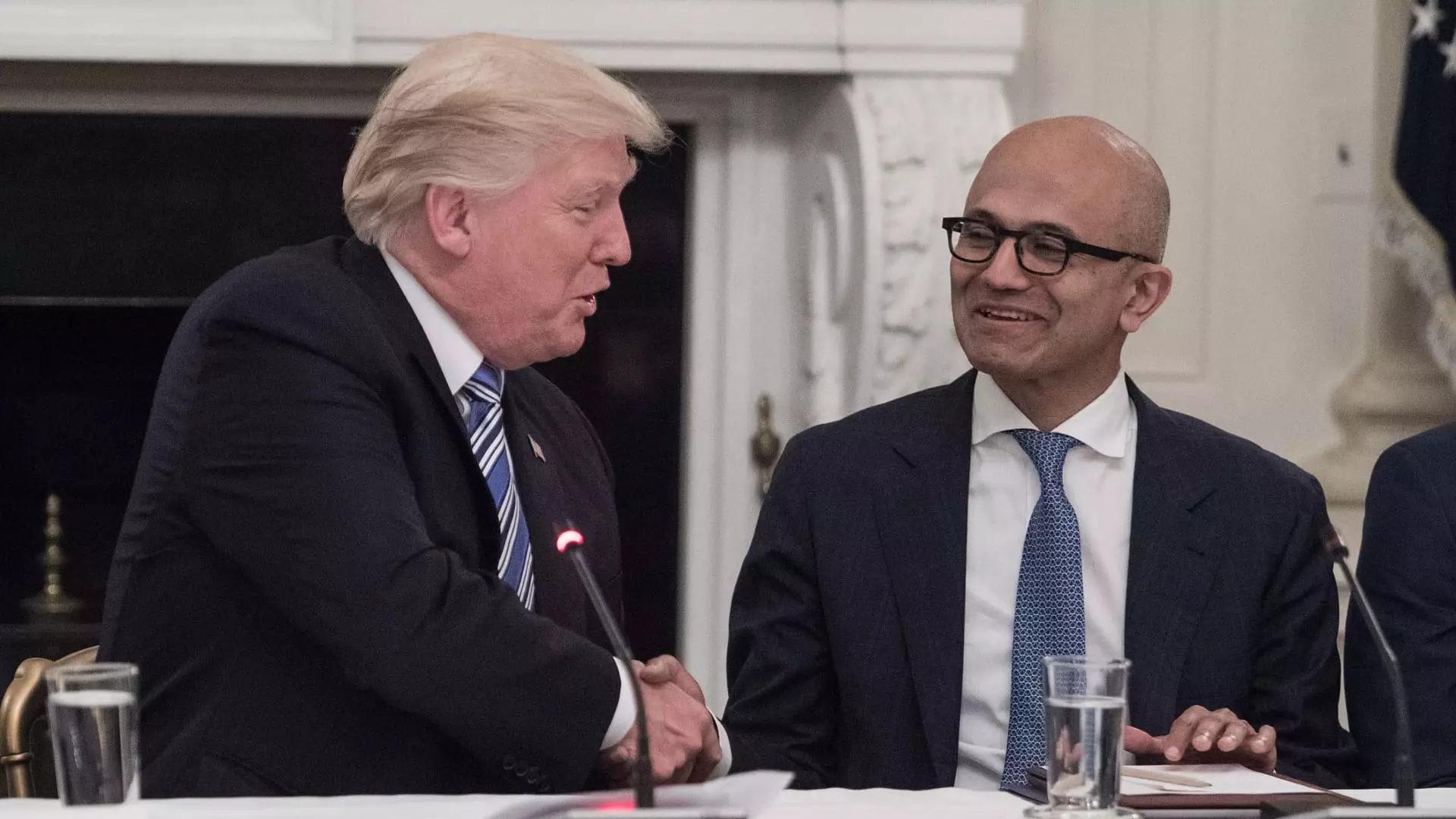In a remarkable show of political engagement, several major technology companies plan substantial contributions to President-elect Donald Trump’s inauguration fund, signaling a potential shift in the relationship between corporate America and governmental leadership. Notables such as Microsoft, Google, Meta, and other tech behemoths seem poised to align themselves with Trump’s administration, reflecting a broader trend of corporations intertwining their fortunes with political realities.
On Thursday, Microsoft announced a donation of $1 million to the inaugural fund, joining a growing list of tech companies previously committing the same amount. This contribution aligns Microsoft with its peers and underscores a strategic effort to engage with the new administration. Notably, in addition to their current commitment, Microsoft had also supported Trump’s first-term inauguration fund as well as President Joe Biden’s, demonstrating a willingness to bridge partisan lines for perceived mutual benefit.
Microsoft’s CEO, Satya Nadella, has historically maintained an active dialogue with Trump, which has included pivotal discussions about significant policy issues, such as the controversial TikTok acquisition negotiations in 2020. This consistent engagement underscores a corporate philosophy that values influence over pure partisan loyalty.
The contributions from various tech companies are not isolated events. Google, Meta, and other influential entities have demonstrated a collective financial commitment to the Trump administration. Reports suggest that Amazon is also considering its own donation, while individuals like OpenAI’s Sam Altman and Apple’s Tim Cook have pledged to contribute $1 million each. This wave of support highlights a collective strategy among technology leaders to ensure their voices are heard in the upcoming administration.
Such coordinated efforts can be interpreted as an attempt to shape policies that directly impact the technological landscape, particularly in areas such as artificial intelligence. By providing financial support, these companies are likely seeking a favorable regulatory environment as the new administration lays out its agenda.
This trend raises critical questions about the implications of corporate donations on democratic processes and governance. Critics might argue that such financial contributions can undermine the political neutrality expected from influential businesses, while supporters maintain that facilitating dialogue between the private sector and government is essential for progress.
As Brad Smith, Microsoft’s vice chair, expressed in a recent blog post, the tech industry holds a vested interest in shaping the landscape of artificial intelligence legislation. A favorable international strategy is key to advancing U.S. interests globally. However, this also suggests a potential for revolving door practices, where corporate leaders exert influence over policy while simultaneously benefitting from favorable outcomes.
The contributions to Trump’s inaugural fund illustrate a critical moment in the evolving interaction between the technology sector and governmental entities. As major corporations like Microsoft and others step forward with financial backing, they not only seek influence but also position themselves as critical stakeholders in the political discussions that will shape the future of technology and innovation in America. The long-term effect of these relationships remains to be seen, but one thing is clear: the lines between corporate interests and political authority are increasingly blurred.

